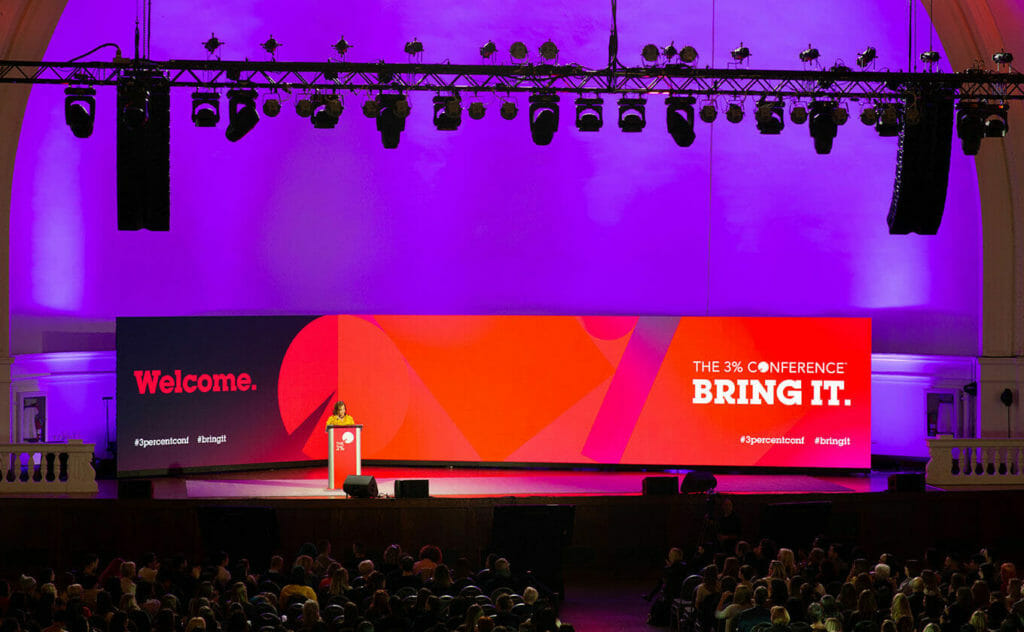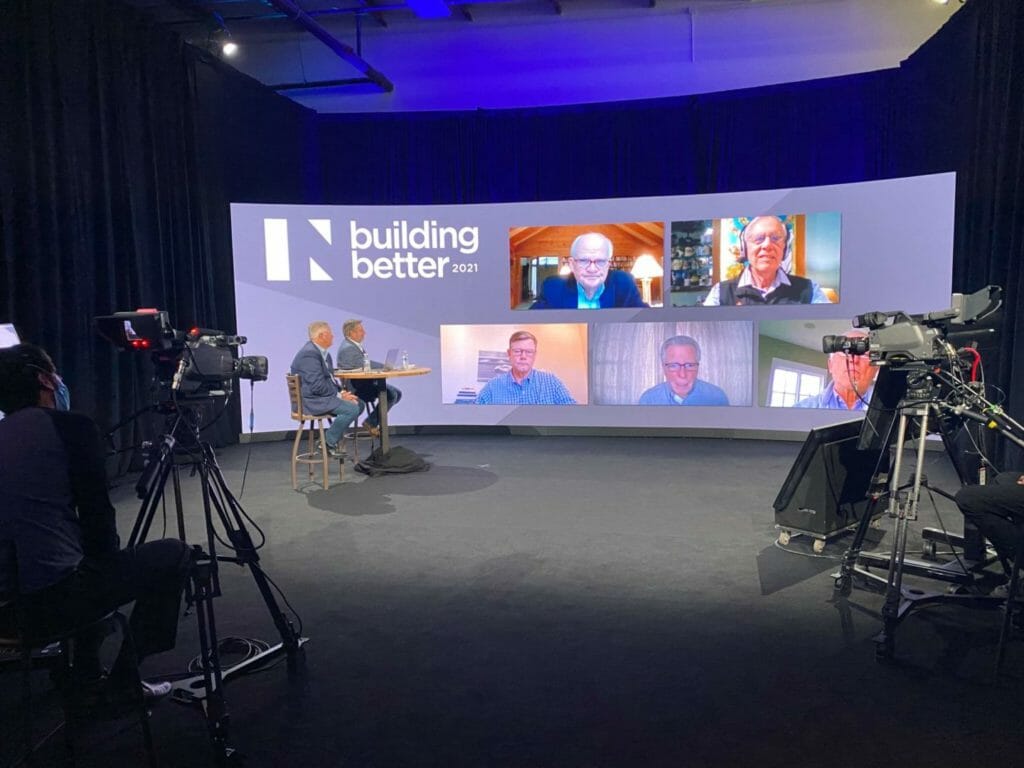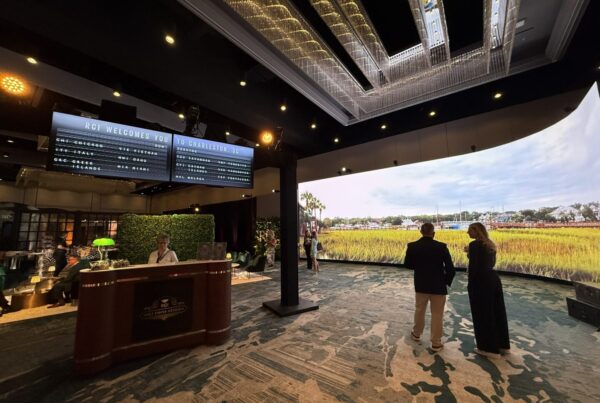As event planners and businesses of all sizes begin building out their event schedules for this year and beyond, now is a great time to look at what technology is coming to the event industry.
2023 looks to be a refining and iterating year that brings stability and consistency to the wild innovations and disruptions of the past two years.
Through a recent survey, Event MB identified several trends that every event manager should know. We’re focusing on the tech-related trends here, along with how Bluewater can support event professionals and planners with their technology needs.
Virtual and Hybrid Events Are Here to Stay
The push toward virtual and hybrid events certainly happened faster than seemed likely, thanks to the sudden and ongoing effects of the pandemic. But through variants, variances in restrictions, and shifting public attitudes toward pandemic restrictions, one trend is crystal clear: now that virtual and hybrid events are here, they aren’t going away.
In the future, in-person attendance will rebound, maybe even considerably. But the groups hosting exhibitors are finding that event attendees have gained too much value from the option of remote attendance and live streaming, which makes it unlikely for a return to how they worked before the pandemic.
Put simply, organizations can reach more people, businesses, contacts, and prospects by including a virtual component in their event experience. Some people can’t afford to travel, don’t want the inconvenience, or are too far away to make travel feasible. The only way to capture this share of the pool is through virtual attendees.
Internally focused opportunities also often make more sense with an interactive virtual component. Larger organizations can leverage real-time hybrid and virtual to include more of their workforce (such as a company-wide end-of-year party) or more of their sales team and vendors (with a virtual sales kickoff meeting).
The takeaway for event planners is this: if your attitude or approach toward virtual or hybrid has been “let’s do the minimum so we can get through this crisis,” it’s time to adjust. We will get through this crisis. But on the other side, your audiences will expect — maybe even demand — virtual live events.
Now is the time to make those offerings robust and compelling.

New Tech and New Platforms Bring New Support Woes
One of the challenges of adopting any new technology is getting your team fluent in using the new event management software. As tech tools become more numerous and complex, the technical side of using those tools grows more complicated, too.
Pulling off an immaculate on-site event is challenging enough. Now event planners are expected to pile on one or more new layers of technology — and keep all modes of the event running smoothly.
Event technology providers need to step up their support game and, in some cases, streamline their onboarding efforts. Clients who never get comfortable with an event app aren’t likely to stick with it.
Another solution to the challenge of support is partnering with a suitable events enablement partner that understands the intricacies of hybrid events. Or, better still, event organizers can partner with an event tech firm offering its own well-supported virtual event platform. (We think Parallel.live is a great place to start!)

Better Use of Analytics, More Focus on Engagement
As virtual events platforms mature, expect a greater focus on analytics and engagement. Both of these areas were early promises of going digital, but it takes nuance and care to make the most of either.
Virtual events platforms offer better analytics than even the most tech-forward in-person events. You know who plans to attend, who shows up, how long they stay, what they watch or participate in, and more.
The analytics data is richer, but interpreting it remains challenging. Corporate planners (and vendors) that can turn these troves of data into actionable insights this year will see significant gains from doing so.
Engagement also remains a focus for 2023, but here again, the key is finding the right strategy. Digital engagement is different: people check in and out much more casually than if they booked flights to New York for the same content.
Expecting engagement numbers to reach similar levels to in-person events isn’t realistic in most contexts. Still, engagement matters, and putting causes and motivations to any perceived lapses in engagement can help an event planner iterate, improving engagement for the next event on the calendar.
Whatever You Need in Event Tech, Bluewater Is Your Trusted Provider
As you make event plans for 2023 and beyond, Bluewater is ready to partner with you with the best event tech. We’ve also created Parallel.live, a hybrid and virtual events platform built by events professionals. Whatever your objectives, we help you meet or exceed them. Reach out today to discuss how we can help you execute your next successful event.











